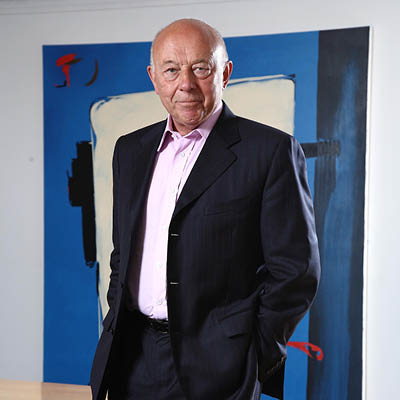What can we learn from other sectors about good governance?
My great American governance guru, Kenneth Dayton, a major Minnesotan business leader and philanthropist, wrote: “Governance in the ‘not-for-profit sector’ is absolutely identical to governance in the ‘for-profit- sector”. That is to say, in both sectors, governance sticks to its role and responsibilities and does not interfere with or second guess the activities of the executives. Every business leader with whom I sat on a cultural board – such as Lord Browne of BP and Niall FitzGerald of Unilever – took the same view. Governance in the cultural world is not different from the corporate world, nor is it lesser. In fact every businessperson or banker I worked with said that often cultural boards were far more complex than business boards. Good governance is the same in either sector.
How has cultural governance changed in the last ten years?
It has changed fundamentally over the last thirty years, ever since the “Whitehall Managerial Revolution” of the 1980s insisted on the professionalisation of governance, sometimes summed up in the term ”management by objectives”. Serving on a cultural board was, in the past, often regarded as an honour, a reward, a pleasant diversion, even an attractive pastime. Those days, such attitudes, are long gone. Board membership today requires – and increasingly receives - time, commitment, attention, dedication and the contribution of both specialist skills and personal judgement. Such professionalism of governance is a vast improvement.
What is the greatest opportunity that sector-wide good governance might bring?
Good governance is not an “opportunity”. It is an essential element in the success of any organisation, a necessary condition. Without “good governance”, no organisation, really, no organisation will flourish. At best it will under perform and fail to achieve its best. This means every supervisory board and the executives need to be aligned, in touch and fully informed about the purposes and values of the organisation. There is nothing new in this. Given the challenges of our times, good governance is an essential priority.
What three words best describe the qualities needed by trustees?
Devoted, professional, unselfish. And generous of themselves.
How do you see the governance of culture evolving over the next 10 years, particularly with the civic role of the arts and the climate crisis in mind?
The challenges from society, politics, and the environment are more likely to be met if organisations stay true to the mantra “governance is governance and management is management”. Perhaps all organisations will need to draw a distinction and recognise the difference between those responsibilities where “compliance” is required – often by law – and those areas where ideas and values prevail. A board that merely emphasises compliance and “box ticking” will not be a good or effective board. Boards must resist being swamped by “issues”. Solutions come from the free exchange of ideas that may not be on the formal board agenda.
Tell us about your first governance role. How did you learn the ropes?
I joined the Trustees of the National Portrait Gallery in 1988. It was an “old fashioned”, traditional board of great academic distinction. I always admired it and those who sat on it. Gradually it changed as a writer, a banker, a social worker and a journalist were appointed. The moment of drama came when the “new” members of the board insisted on choosing a director of the gallery despite the opposition of the traditional academic trustees. It proved to be the right appointment and it was a landmark in how Trustees could act, a great learning experience for me.
The difficulty with sitting on a board of any kind is that there are no “ropes” to be learned. You sit, you watch others, you listen, you learn the organisation. Gradually you decide where you can contribute. Being on a board involves thought, judgement, awareness. It is not principally about process. It is about your character and humanity. No “ropes” can instruct you as to how to act and behave.
What governance challenges are you facing at the moment and what are you doing to overcome them?
At the Turquoise Mountain Trust, where I am a trustee, we are watching to see how long we can continue working in Afghanistan especially if the Taliban take over in Kabul. With the European Union Youth Orchestra (EUYO), which I co-chair, we are determining our new sources of funding needed because of Covid-19. Neither of these are “governance” challenges as such. Both organisations have strong CEOs, good Chairs, excellent dedicated boards and a united sense of direction, purpose and strategy. We face major practical and policy problems but are as one in our determination to find solutions. Good governance makes it more likely that we will find good solutions.
What advice would you give prospective trustees/(or chairs) in the cultural sector?
If you join a board you will learn about another organisation, different ways of working, meet a wider range of people and skills. It offers a real personal learning experience. Sometimes it will be painful, often it will be difficult. It will also be rewarding and mind expanding. If you get the opportunity, take it. To a prospective chair, unless you and the CEO see eye to eye, don’t get involved. After all, you may have to sack them.
We hope you’ll join Sir John Tusa and a host of other fantastic speakers at Governance Now 2020 — the flagship conference for culture sector trustees and professionals.
Governance Now takes place online from 5 November to 26 November 2020. Book tickets here.
Governance Now 2020 is sponsored by Saxton Bampfyldeand promoted by the Cultural Governance Alliance, a network of sector agencies led by Clore Leadership.



